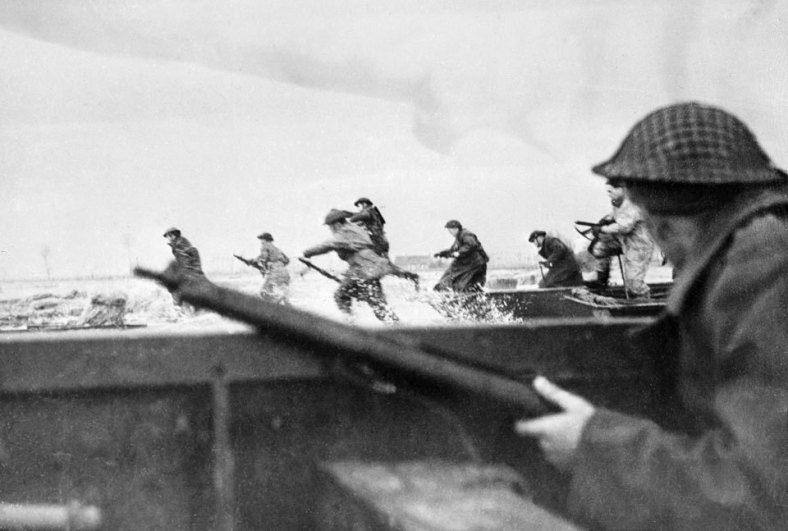Like this article? rabble is reader-supported journalism. Chip in to keep stories like these coming.
It has now been two years since I wrote this piece on the intersection of Canadian politics and the history of World War II, in particular D-Day, the Allied landings on the coast of Normandy 72 years ago today. I think it’s one of the best pieces I’ve published in the near-decade I’ve been writing this blog. Thank goodness, the Harper government is gone, and with it some of its worst instincts. Still, the basic (mis)interpretation of World War II history in the West has not changed much, and I’m publishing this post again today to appropriately mark the occasion, without feeling any need for further adornment or updating. Most of the original links are dead, so readers will just have to trust my quotes. David J. Climenhaga
It’s been 70 years today since our magnificent Canadian soldiers went ashore at Juno Beach in Normandy to play their part the grim and deadly task of sweeping Hitler and his odious empire out of Europe.
But Canadians need to remember, in the context of the present moment in history, that what the landings on June 6, 1944, by 156,000 Canadian, British, American and other Allied soldiers along the beaches of Normandy did was open a second front against Germany.
The first front was in the East, and it was against Russia that Adolf Hitler’s armies were eventually crushed in the vise created by the D-Day landings.
It must have been about 30 years ago when my military history professor — soldier, scholar and author of 1944: The Canadians in Normandy, Reginald H. Roy — reminded my classmates and me that if it hadn’t been for the anvil of the Red Army in the East, the hammer of D-Day in the West would have amounted to much less.
“We’d still be in Normandy,” was the way Professor Roy put it, and he didn’t mean as tourists like the political supernumeraries in the Canadian delegation at Sword Beach near Caen today.
Indeed, the chances are good that without six million soldiers of the Red Army pressing Hitler’s Eastern flank in 1944, we would not be in France at all, but for the dead and a few diplomats. About 80 per cent of the German Army’s casualties were inflicted by the Red Army, which after June 1944 cleared the Wehrmacht from Eastern Europe, wiped out an entire German Army Group and opened the road to Berlin.
Remember that when you hear Prime Minister Stephen Harper’s petulant concession that Russian President Vladimir Putin should be allowed to visit Normandy for the 70th anniversary ceremonies.
Remember that when you read the chickenhawk commentary by some of the mainstream media’s retainers, all togged out in faux fatigues like drivelist Matthew Fisher, who informed Postmedia’s dwindling readership this week that “only one Soviet soldier is known to have been buried in a war grave on the Western Front.”
Well, there’s something like 11 million of the poor bastards buried on the Eastern Front to make up for that, aren’t there? And without them we’d all have had to learn German as our second language in school, regardless of whether it turned out we answered to Washington or Berlin.
Nothing more really needs to be said about the fact Harper is using, drawing from Fisher’s warmed-over stenography, “the toughest language of any western leader to describe Putin’s recent behaviour in Ukraine” and intends, like a sullen child, to turn his back on the Russian leader in France.
You’d think from Harper’s stale Cold War rhetoric that we’d been fighting Russia, not Germany, in 1944. His cartoonish, transparently ideological pronouncements about what’s happening on the border between Russia and Ukraine, and what ought to be done about it, reflect the fact that of all the leaders in Normandy today he has the least to lose, and the most to gain from cynical wedge politics at home.
Francois Hollande, the president of France, hit the right note when he gracefully told French TV a month ago: “We may have differences with Vladimir Putin but I have not forgotten and will never forget that the Russian people gave millions of lives. I told Vladimir Putin that as the representative of the Russian people, he is welcome to the ceremonies.”
This post also (re)appears on David Climenhaga’s Blog, AlbertaPolitics.ca.



